A Singaporean's climb up Huangshan 40 years ago
Hua Language Centre director Chew Wee Kai describes his first visit to Huangshan some 40 years ago, which was a memorable trip in more ways than one. Aside from the unapologetic clouds and towering pine trees atop of the mountain, the climb up and descent down is one for the books.
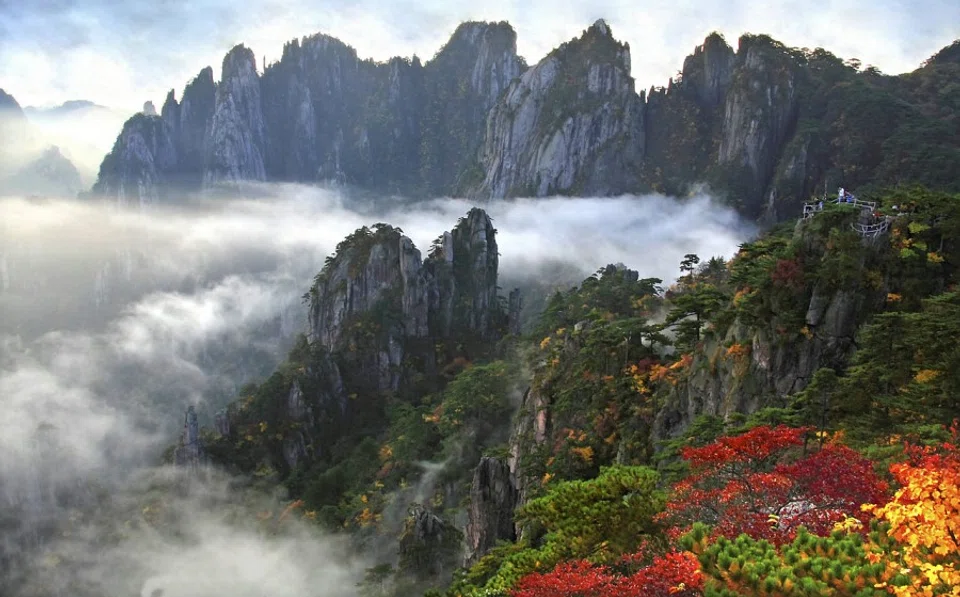
Forty years ago, I climbed Huangshan for the first time. At the time, China's reform and opening up was unfolding, and the pioneering Shenzhen Special Economic Zone was only a few years old. But even though the old shackles were loosened, the people still used coupons to exchange for food and cloth, while foreign visitors used waihuiquan (外汇券) or the foreign exchange certificates.
Greys and blues were still the staple outfits of the people in those days, and their eyes glimmered with a sense of novelty and curiosity about all things foreign.
Unexpected ride
I had no plans at all to go to Huangshan. That year, I took the green train (绿皮车) from Guangzhou to Shanghai to gather academic material. It was my first time in China, and my Japanese friend Sakakuchi, who worked in Hong Kong, recommended his good friend Yi to me.
I had never met Yi, and my friend gave me a glimpse of Yi's picture just before I left - but it was from the time he was "sent down" to the countryside during the Cultural Revolution. Nonetheless, that misty morning, we instinctively found each other at the Shanghai train station with no difficulty.
Yi later shared that he noticed the people around looking at me as an outsider, joking that I was a soft, pampered visitor from a capitalist society.
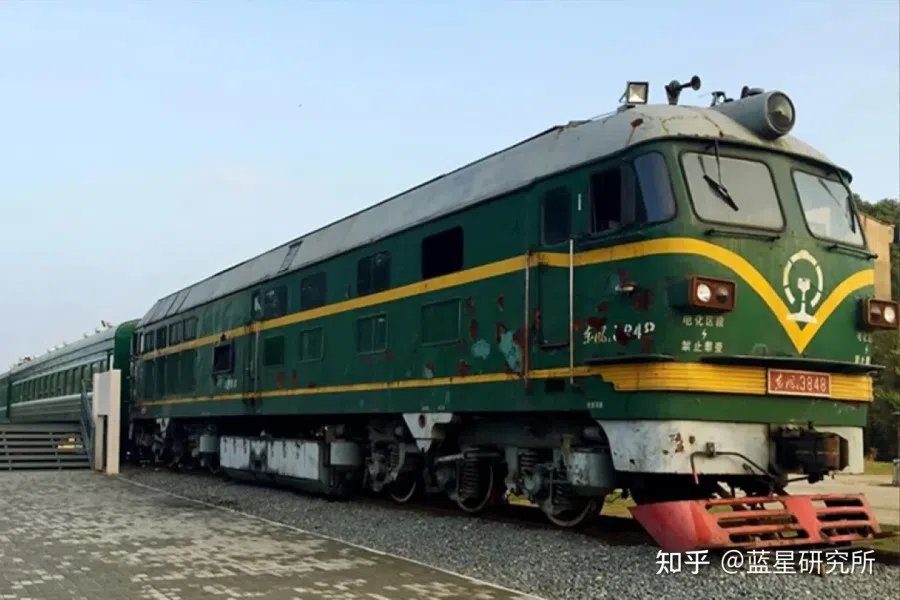
This was in early winter, and I stayed with Yi for my first trip to Shanghai. There was no heating in his house, but I witnessed Yi's thoughtfulness as he prepared a hot water bottle to put under the sheets and warm my bed at night.
Winter passed into spring, then summer. I stayed at Yi's house again when I made another visit to Shanghai, the intoxicating city that never sleeps. One day at breakfast, he asked if I was interested in going to Huangshan in Anhui province. Sensing my hesitation, he quickly explained that someone he knew would be driving a factory bus to Huangshan the next day. My interest was piqued upon hearing that it would be a lift, so I said yes.
We hit the road at four in the morning the next day. The vehicle was full of workers heading to Anhui for a shift change - I sat at the back of the bus with Yi and Ting, the only people I was familiar with.
The roads were not in very good condition and the ride was bumpy all the way, but the passengers still managed to sleep, lolling from side to side. Apart from a couple of toilet breaks, the vehicle sped onwards. Yi had prepared dry rations for lunch, which we ate on the bus.
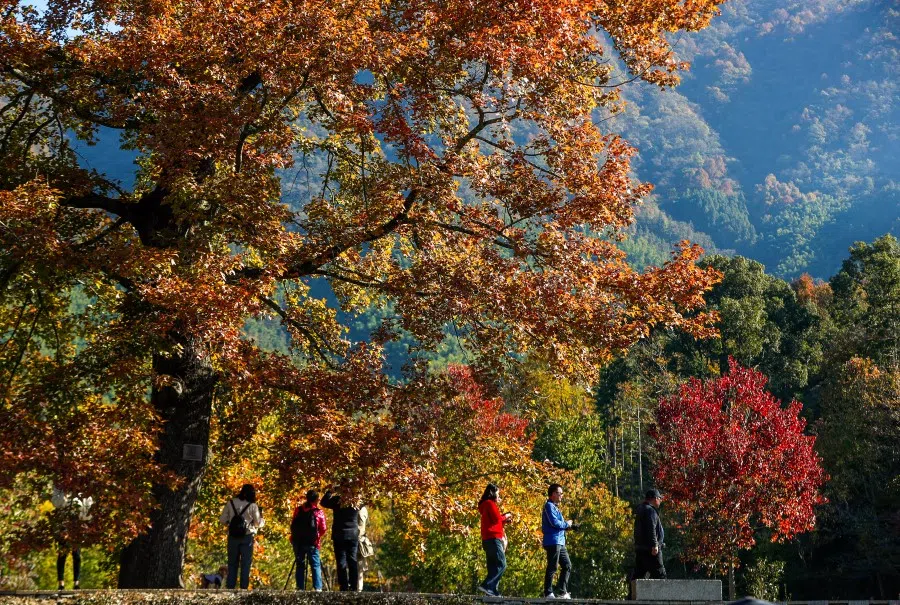
After a whole day of bumps and thumps, the vehicle entered a flat, verdant forest in the evening, with some nondescript factories nestled amid the quiet wilderness. The three of us headed straight to a simple hostel after getting off the vehicle, dropped off our luggage, and went to the public bath to wash away the grime and fatigue of the day.
As it was my first time at an old-fashioned bath, Yi asked if it was alright for me. I had no reservations; having gone through the mandatory military training, I was used to being naked in company. Yi later shared that he noticed the people around looking at me as an outsider, joking that I was a soft, pampered visitor from a capitalist society.
Huangshan's scenery is ever-changing; the pine trees, rocks and clouds are a perfect combination, but it still takes a touch of luck to get your heart's desire.
Quiet observation and contemplation
After a dreamless night, we took a bus to the foot of the mountain early the next morning. The route up Huangshan is arduous and tiring, especially in the summer, which I did not expect. Before our ascent, Yi bought for each of us a bamboo stick about four feet long. Initially, I thought it was unnecessary, but it didn't take long for me to realise its usefulness.
Not long into the journey, I saw weary-faced people heading downhill, going backwards step by step. Some people made snarky comments, only to be met with harsh rebuffs: "You'll soon be crawling down the mountain."
I thought it was an exaggeration and was not intimidated. But an hour later, I gradually realised that most of Huangshan's narrow, steep stone steps were carved directly into the mountain, with some parts only accessible single file and on all fours.
Huangshan is known for its beauty, and it is indeed magnificent, but it also depends on whether the scenery is willing to meet you. Huangshan's scenery is ever-changing; the pine trees, rocks and clouds are a perfect combination, but it still takes a touch of luck to get your heart's desire.
The Welcoming Pine (迎客松) is so famous that the saying goes: "If you don't reach the Welcoming Pine, the trip is in vain." (不到迎客松,白跑一场空) If luck is not on your side and a large patch of clouds acts up and refuses to move as it blocks the view of the Welcoming Pine, you can wait and wait until you run out of time and eventually walk away in disappointment.
The pauses scattered across the climb where one silently watches the clouds swirling around the pines and rocks: that is called understanding and letting go.
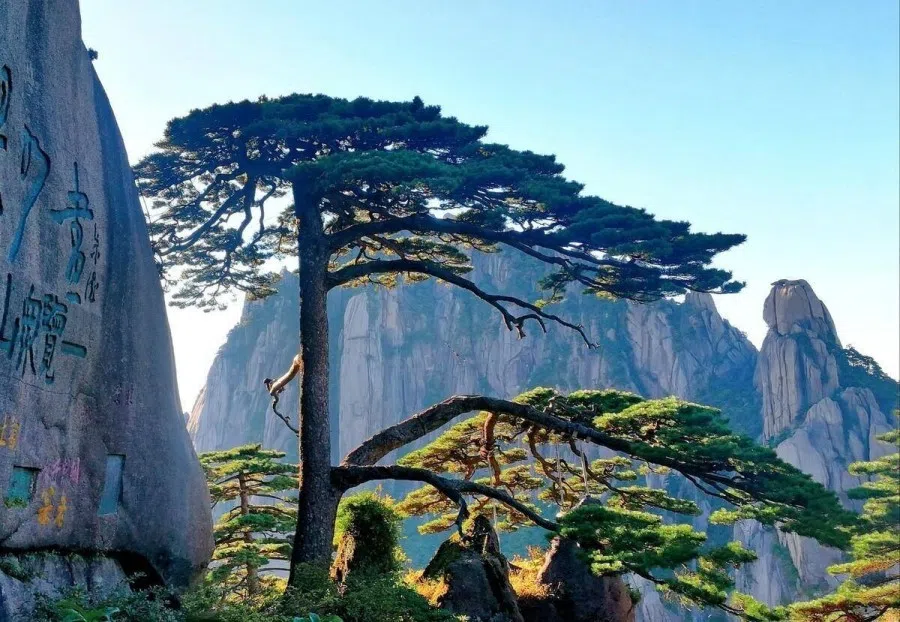
Huangshan is made of rock; complemented by clouds and pine trees, the scenery magically comes alive. The stones are shaped by a divine hand, the majestic pines exude a philosophical flavour, and the flowing clouds show a fickle arrogance.
Reading Huangshan is all about quiet observation and contemplation. The pauses scattered across the climb where one silently watches the clouds swirling around the pines and rocks: that is called understanding and letting go. Soaked clothes dried by the wind and tired feet replaced by a body refreshed - what more could one ask for?
Unforgettable stay
On our way down, we also went backwards down the steps, with the bamboo stick noticeably worn after all that climbing. By the time we reached the foot of the mountain, it was already eight in the evening. The hotels were full, and Yi and Ting scrambled around before a kind soul finally pointed us towards a simple farmer's inn. Without a second thought, we paid 2 RMB (US$0.30) for our overnight sojourn.
Staying in a farmer's attic for 2 RMB was a new experience. While the warm-hearted host cooked noodles for us, we quickly took a shortcut to the river to bathe. There was no moonlight, only the sound of insects accompanying the rush of the water. It was a pleasure to feel the coolness of the water after a long journey, even if we could not see it.
Back at the house, we devoured the hot noodle soup, which was truly satisfying. Up in the attic, five light bulbs hung from the ceiling; the walls were covered with old issues of the People's Daily, with national leaders smiling at guests from across the centuries. The bed was made of wooden boards, and this tired sack of skin and flesh laid down and fell into a deep sleep with historical figures for company until morning.
Strange rocks, tall pines, floating clouds, stone steps, the narrow strip of sky, the top of the world... Over the decades, memories of my trip to Huangshan have drifted away, with few that remain. But that night at the house at the foot of the mountain still pops up on occasion.
This article was first published in Lianhe Zaobao as "黄山行".
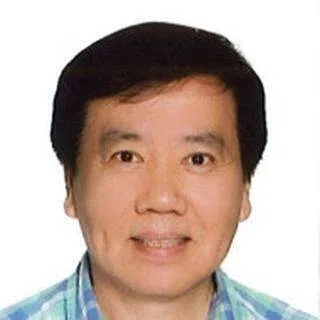


![[Big read] When the Arctic opens, what happens to Singapore?](https://cassette.sphdigital.com.sg/image/thinkchina/da65edebca34645c711c55e83e9877109b3c53847ebb1305573974651df1d13a)
![[Video] George Yeo: America’s deep pain — and why China won’t colonise](https://cassette.sphdigital.com.sg/image/thinkchina/15083e45d96c12390bdea6af2daf19fd9fcd875aa44a0f92796f34e3dad561cc)
